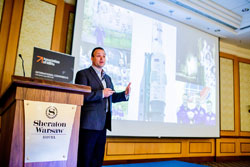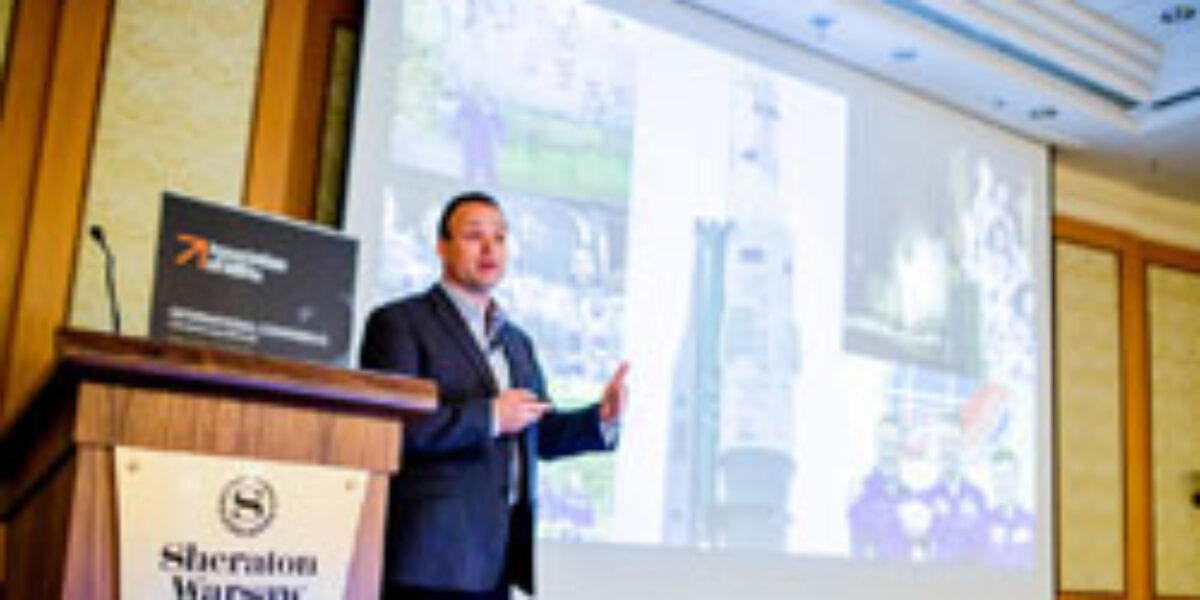Collaboration and connectivity are the future for the MBA
 There is no doubt that, since its inception at the beginning of the 19th century, the MBA has been a very successful business education tool. It has evolved with the times to become more elaborate and varied and it has spread around the globe so that today almost any aspiring business leader has an interesting choice of programmes. With change comes increased diversity and that means more choice. Today’s challenges require an even quicker response from management educators who have to contend with a world where the capitalist view of optimising purely for profit is questioned, environment and sustainability are now integral to responsible business, and the digital era creates new opportunities.
There is no doubt that, since its inception at the beginning of the 19th century, the MBA has been a very successful business education tool. It has evolved with the times to become more elaborate and varied and it has spread around the globe so that today almost any aspiring business leader has an interesting choice of programmes. With change comes increased diversity and that means more choice. Today’s challenges require an even quicker response from management educators who have to contend with a world where the capitalist view of optimising purely for profit is questioned, environment and sustainability are now integral to responsible business, and the digital era creates new opportunities.
Over the years, the MBA has been pretty resilient; it has evolved as the sometimes startling technological, political, and social changes have emerged unannounced. In response to these changes, and ones just around the corner, the top business schools have adapted and they continue to look at the evolution of the postgraduate management degree and how to future-proof the MBA. As a leading international accreditation organisation, the Association of MBAs (AMBA) provides its elite group of top business schools with a forum to exchange ideas and discuss innovative ways to reshape the management training agenda for the future at its annual International Conference for Deans and Directors.
Meeting in Warsaw, under the backdrop of Poland’s remarkable transformation and achievement, this year’s conference demonstrated the changing dynamic of MBA education. Senior management from more than 140 business schools from around the world gathered to share ideas and exchange best practice to reshape the management training agenda for the future. Three key themes emerged for business schools to embrace: Collaboration; localization and culture; and connectivity and learning styles.
Global business of the future will be about collaboration in a super-connected world. Management education needs to adapt now to prepare the next generation of business leaders says Mark Stoddard, Accreditation Manager, the Association of MBAs.
Sharing an orbital perspective on the new way to do business, NASA astronaut Ron Garan gave a big picture view to the deans and directors from the world’s leading business schools.
Garan’s view that the future is about collaboration on a global scale came from his own experience of six months at the International Space Station. Three hundred miles above the earth where you see 16 sunsets and sunrises per day and share your mission with astronauts from many different nationalities has confirmed Garan’s view that all business needs to do is collaborate to make the world a better place.
He told delegates that he believes the fundamentals of business are changing rapidly and trends are developing, that if embraced and accelerated, could have a positive impact on society and help solve many of the problems facing our world.
“On Earth many of our problems stem from not being able to collaborate on a global scale – we need to put aside our differences. There are lots of organisations independently working for good – but what if they collaborated?”
He told conference delegates that successful companies of the future will be those that realise that businesses that have the main focus to create social good are simply good businesses.
“Business is a way you can change the world. You can have a profound and positive effect on the world by encouraging people going into business to look for ways to do good.”
Following in Garan’s theme for open collaboration, AMBA’s conference encouraged the sharing of ideas among business schools. In the same way that the emerging economies are powering growth as the global economy struggles to adapt to a new business world order, the leading business schools in emerging markets are re-shaping business education and introducing innovative new concepts to the MBA curriculum.
“The emerging economy business schools have a great advantage to become number one in the world because they don’t need all this time for unlearning because they are just learning,” said Professor Danica Purg, President, IEDC-Bled School of Management in Slovenia and President of CEEMAN.
As business leaders need to understand the dynamic inter-relationship of globalisation and localisation in today’s ‘global village’, business schools are able to offer leadership training with local cultural perspectives to develop the managers of the future. Given their unique position, these schools are able to give students a firsthand experience of business realities in the world’s fastest growing economies.
By applying lessons as diverse as those from music and arts, and also spirituality and the humanities, accredited business schools are showing how different cultures and creative thinking can create more effective leaders.
“A manager’s effectiveness is the function of that manager’s knowledge and skills, maturity and wisdom and state of mind at time of taking the decision – it is about the rational mind, intuitive mind and equanimity,” Professor Prem Chandrani from the SP Jain Institute of Management & Research told delegates in Warsaw.
 In SP Jain’s MBA programme students learn about the spiritual and emotional qualities needed in a leader, they look at how to contribute to society on a programme that takes them out to the Indian slums and how to develop corporate citizenship with NGO work in rural areas.
In SP Jain’s MBA programme students learn about the spiritual and emotional qualities needed in a leader, they look at how to contribute to society on a programme that takes them out to the Indian slums and how to develop corporate citizenship with NGO work in rural areas.
Professor Purg shared the details of IEDC Bled’s innovative MBA curriculum that focuses on the arts and told conference delegates that traditional education with an accent on skills and knowledge improves the analytical capabilities, but not the necessary capabilities to lead change.
“In order to develop leaders who are open for change and to improve their communication skills, we need educational programmes with impact on emotion and imagination.”
IEDC believe in creativity and the power of music and the arts as inspiration for leadership and include these in their Arts MBA curriculum. “Art and artists stimulate us to see more, to hear more and to feel more about what is going on within us and around us.”
Their Arts MBA Programme was a finalist for AMBA’s recent MBA Innovation Award along with other schools including Wuhan University School of Economics and Management. The long established Chinese University with a strong background in humanities and social sciences has played to its strengths in developing an Executive MBA that integrates China’s traditional humanities and philosophy into its management education.
In a snapshot survey conducted by AMBA during the three day conference, the Deans and Directors overwhelmingly agreed that innovation was critical to success, with over 77% of the delegates who took part in AMBA’s survey saying they thought that the MBA will have to innovate in order to remain the flagship business school degree.
While business schools like SP Jain talk about breaking down borders of traditional management education they are also crossing borders with their international campuses. One of the top ten business schools in India, SP Jain has campuses in Sydney, Singapore, Dubai and Mumbai. A growing number of business schools have been adding international campuses for many years, in the UK this includes the University of Manchester Business School which has seven global centres and Nottingham with campuses in China, Malaysia and Singapore. Another AMBA-accredited business school that positions itself a global institution is Hult International which offers MBA students a global campus rotation across all five of their international hubs.
Hult states that “Today’s global economy leaders need to have worked across borders, understand cultures, and operate in international contexts.”
Technology is breaking down the borders of management education and offering MBA students opportunities to interact across geographies without having to physically relocate. In a presentation to conference delegates, GMAC’s application trends showed that 66% of all global online MBA programmes reported growth in 2012, whilst only 47% of full-time MBA programmes and 49% of Executive MBA programmes reported growth.
AMBA’s research has also shown a growth in distance-learning and at a previous conference the MBA community agreed that blended learning would be the MBA of choice in the future.
While the choice of MBA programmes will continue to grow with accessibility of online courses it is important to be able to differentiate in a crowded space. At the meeting of deans and directors it was agreed that accreditation will play an increasingly important role in the future of postgraduate management education to differentiate the quality MBA programmes. Employers and students alike will know that MBA programmes with AMBA accreditation are committed to adapt and change while maintaining standards.
In an ever changing world where the future is uncertain it is important to know that quality remains fundamental to the teaching of future generations of leaders and that this resilient vehicle, the accredited MBA, will provide comprehensive management education for a long time to come.
To view highlights from AMBA’s International Conference for Deans and Directors go to: http://www.mbaworld.com/News/Highlights-from-the-International-Conference-2013.


